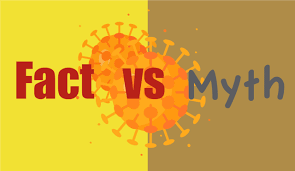Mobile health, or mHealth, is a rapidly growing field that utilizes mobile devices to improve healthcare delivery and outcomes. With the increasing availability and affordability of smartphones, tablets, and wearables, mHealth has the potential to revolutionize healthcare by providing patients with greater access to healthcare services and empowering them to take control of their health. However, there are many misconceptions about mHealth that can hinder its adoption and effectiveness. In this article, we will explore some of the common myths about mHealth and separate fact from fiction.
Myth 1: Mobile health is only for young people
One of the most common misconceptions about mHealth is that it is only for young people who are tech-savvy. While it is true that younger generations are more likely to use mobile devices, mHealth has the potential to benefit people of all ages. In fact, older adults may benefit the most from mHealth as they often have more chronic conditions and mobility issues that can make accessing healthcare services difficult. Mobile health apps can help older adults manage their medications, monitor their vital signs, and communicate with their healthcare providers from the comfort of their own homes.
Myth 2: Mobile health is not secure
Another common myth about mHealth is that it is not secure and puts patients’ personal information at risk. While it is true that there are security risks associated with any technology, mHealth apps and devices are subject to the same regulations and standards as traditional healthcare technologies. In fact, many mHealth apps and devices use encryption and other security measures to protect patients’ data. Additionally, patients can take steps to protect their own privacy by choosing apps and devices that have been vetted by reputable organizations and by being cautious about sharing personal information.
Myth 3: Mobile health is only for monitoring health
While mHealth is often associated with monitoring health, it has many other applications as well. For example, mHealth can be used to deliver healthcare services remotely, such as telemedicine consultations and virtual physical therapy sessions. It can also be used to provide patients with educational resources and support, such as nutrition and exercise tips and mental health resources. Additionally, mHealth can be used to improve healthcare delivery by streamlining communication between healthcare providers and reducing administrative burdens.
Myth 4: Mobile health is not effective
Finally, there is a misconception that mHealth is not effective and does not improve healthcare outcomes. However, there is a growing body of evidence that suggests otherwise. For example, a study published in the Journal of Medical Internet Research found that patients who used a mobile app to manage their diabetes had better glycemic control than those who did not use the app. Another study published in the Journal of Telemedicine and Telecare found that telemedicine consultations were as effective as in-person consultations for managing chronic conditions such as diabetes and hypertension. While more research is needed to fully understand the effectiveness of mHealth, the early results are promising.
Conclusion
Mobile health has the potential to transform healthcare by providing patients with greater access to healthcare services and empowering them to take control of their health. However, there are many misconceptions about mHealth that can hinder its adoption and effectiveness. By separating fact from fiction, we can better understand the potential of mHealth and work towards realizing its full potential.

